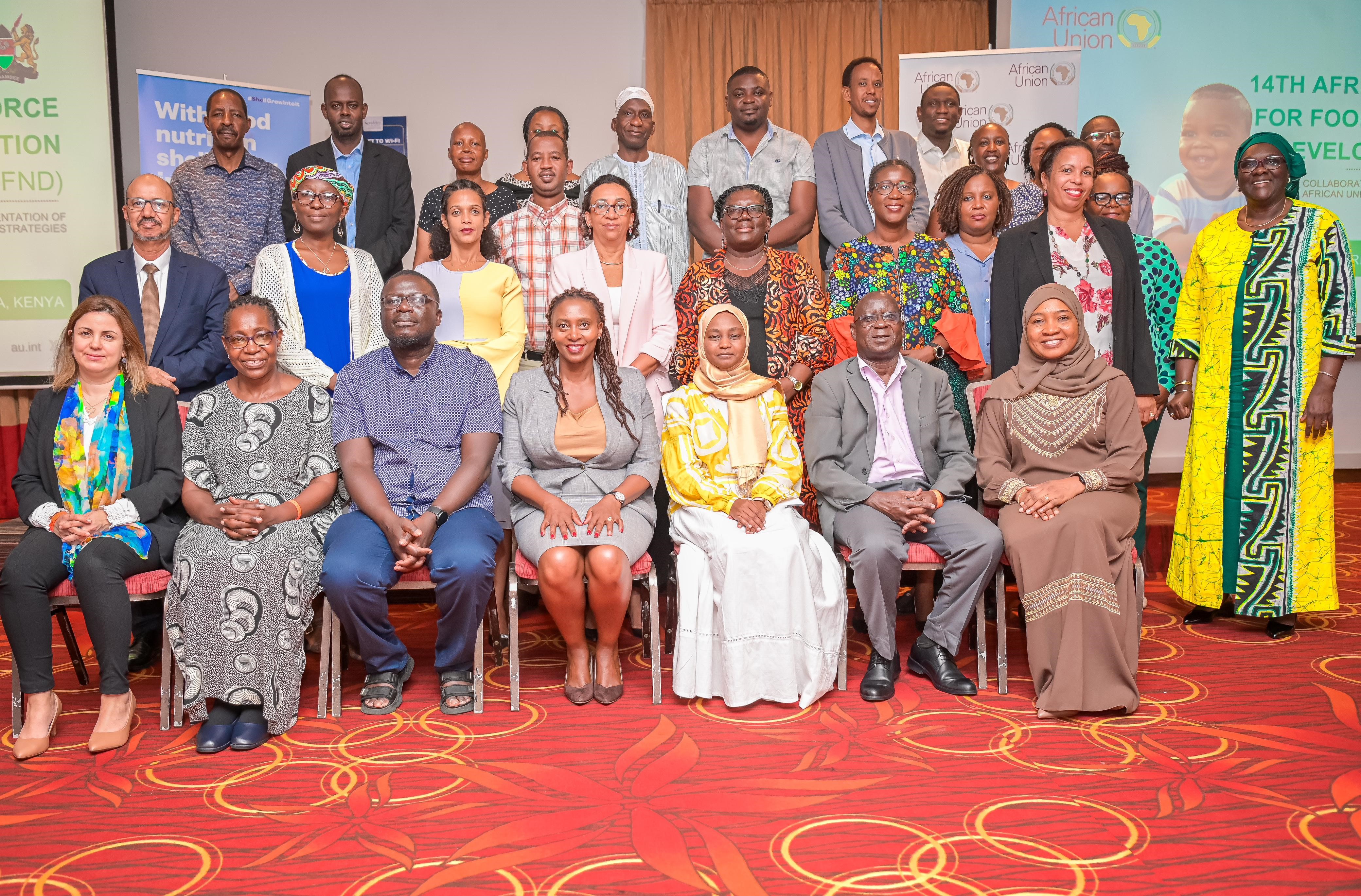News
World Vision-led REACTS-IN receives $44 million to transform nutrition, empower women and promote gender equality
May 26, 2023
African Union’s taskforce adopts strategies supported by Nutrition International and partners
The 14th African Task Force on Food and Nutrition Development held in Mombasa Kenya, marked an intensified commitment among nutrition stakeholders to develop actionable solutions and strategies to address Africa’s most pressing nutrition challenges beyond 2025. Nutrition International reaffirmed its commitment to supporting the African Union in implementing the Africa Regional Nutrition Strategy 2015-2025, with a specific focus on advancing two key priorities: adolescent nutrition and anaemia.
Posted on April 16, 2024
Mombasa, KENYA – The African Union Commission (AUC) successfully convened the 14th African Task Force on Food and Nutrition Development (ATFFND), hosted by the Government of Kenya from April 2nd-5th, 2024 in Mombasa. The four-day event, themed ‘Collaborating for Effective Implementation of the African Union Nutrition Policies and Strategies’ served as an opportunity for nutrition stakeholders to come together and assess strategies and policies that aim to reduce malnutrition and food insecurity in Africa. On the margins of the event, Nutrition International jointly organized a workshop that offered a platform to consult with Regional Economic Communities (REC) representatives on two major nutrition priorities for the continent: adolescent nutrition and anaemia in women, children and adolescents.

Nutrition International provided technical support to the development of the Africa Regional Nutrition Advocacy and Communication Strategy and collaborated with the World Health Organization (WHO) to develop the AU Strategic Framework for the Prevention and Management of Anaemia in Africa. Both strategies will play a crucial role in facilitating the implementation of the Africa Regional Nutrition Strategy (ARNS) 2015-2025, as well as the forthcoming ARNS slated for 2026-2035.
“Nutrition International’s work with the AUC is guided by our three-year memorandum of understanding, signed in 2022,” said Margaux Stastny, Vice President of External Relations, Nutrition International, underscoring Nutrition International’s commitment to working with the AU, REC and other partners in implementing the ARNS. “It is an honour for us to walk alongside you – as a trusted partner – on this historic journey towards the prosperous Africa envisioned in Agenda 2063.”
The REC workshop highlighted Nutrition International’s collaborative efforts with various partners in assisting the AUC in identifying and addressing the key drivers of malnutrition on the continent. Lucy Murage, Regional Advisor for Adolescent Nutrition, Nutrition International provided the REC and partners with an update of the current adolescent nutrition landscape in Africa. She called for prioritization of adolescent’s needs, describing it as, “an accelerator for Africa’s Agenda 2063, Malabo Declaration and other continental initiatives.” The delegation from Nutrition International provided a progress update on the With Good Nutrition, She’ll Grow Into It (SGII) campaign, which was launched in collaboration with the AU in March 2023.
Gertrude Kara, Technical Advisor for Nutrition Policy at the AUC, presented the Strategic Framework for Prevention and Management of Anaemia in Africa during the REC workshop and ATFFND meeting. This comprehensive framework provides evidence-based strategic actions aimed at reducing anaemia prevalence across AU member states. It will also function as a roadmap, enabling member states to develop contextualized, costed, multisector national action plans for anaemia prevention and management, focusing on five priority action areas adapted from the WHO’s Comprehensive Framework for Anaemia.
The ATFFND meeting reviewed progress in the implementation of the ARNS 2016-2025 and the Multisectoral Policy Framework and Financing Target for Nutrition. Discussions also centered on integrating education and nutrition strategies to advance sustainable development in Africa. The meeting further reviewed the implementation of key initiatives and provided technical guidance on various initiatives, including the African Union Nutrition Champion Work Plan (2024-2026), African Leaders for Nutrition Initiative, Continental Nutrition Accountability Scorecard, Cost of Hunger in Africa Study, Cost of Food and Nutrition in Africa Studies, Comprehensive African Agricultural Development Programme and the Post Malabo Agenda, among others.
The meeting was attended by representatives from African Union member states, the African Union Commission Departments, the African Union Development Agency, Regional Economic Communities, the African Development Bank, United Nationals Agencies, intergovernmental organizations, civil society organizations and members of academia.
The 14th ATFFND report and recommendations will be submitted to the AU’s 5th Specialized Technical Committee for Health, Population and Drug Control later this year.